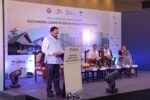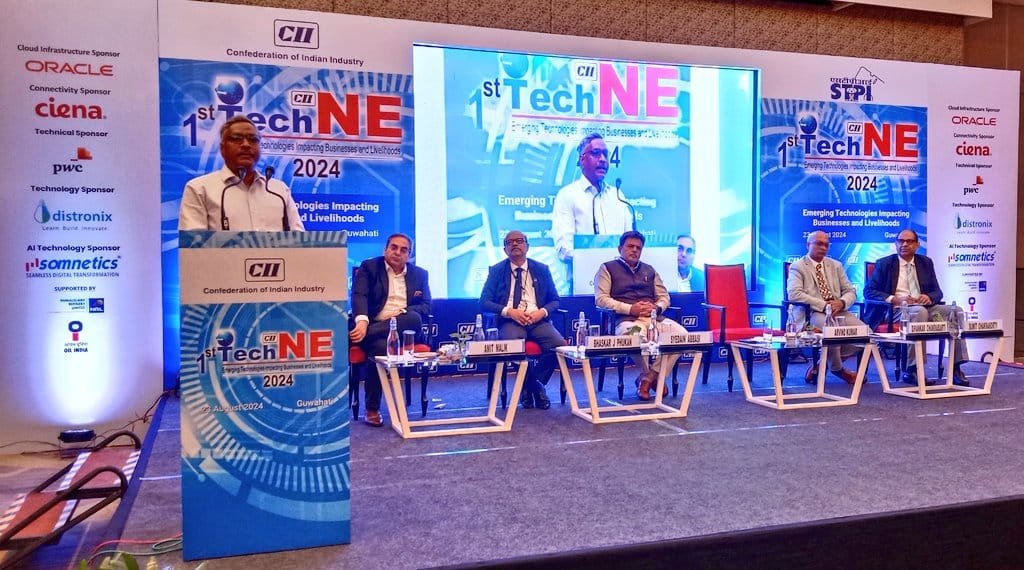The International Rice Research Institute (IRRI) held an paddy value chain exit strategy meeting on June 12 for the Assam Agribusiness and Rural Transformation Project (APART), focusing on the significant advancements and future strategies to sustain the project’s impacts in Assam. The meeting underscored the critical need for coordinated efforts and the integration of government schemes to ensure the continuity and sustainability of the technologies and practices introduced by IRRI.
Ms. Aruna Rajoria, Commissioner and Secretary and Agriculture Production Commissioner of the Government of Assam, opened the meeting by highlighting the necessity of aligning government initiatives with the technologies and practices developed under the APART project. She stressed that a collaborative approach involving the state government, Assam Agricultural University (AAU), other state agencies, and IRRI is essential to maintain the momentum of technology adoption in Assam.
Dr. Sudhanshu Singh, Director of the IRRI South Asia Regional Centre, presented a comprehensive overview of the project’s impact. He noted that Assam has witnessed a remarkable increase in rice productivity in the demonstration plots under APART, showcasing the effectiveness of IRRI-supported technologies in boosting agricultural output and efficiency. This increase in productivity not only highlights the success of the project but also sets a benchmark for future agricultural initiatives in the region.
Following Dr. Singh, Dr. Sanjay Chetia, Director of Research at AAU, spoke about the transformative impact of IRRI-supported technologies on the rice value chain in Assam. He explained that the comprehensive approach taken by IRRI and AAU has led to significant improvements in productivity and the overall value chain. This approach has benefited farmers and other stakeholders by enhancing the quality and quantity of rice produced in Assam, thus positively impacting the local economy.
The meeting also featured insights from several senior officials. Mr. Virendra Mittal, State Project Director of the ARIAS Society, discussed the practical aspects of implementing the exit strategy. He emphasized the importance of creating a sustainable model that can be scaled up to benefit a larger number of farmers and stakeholders in Assam.
Mr. Tej Prasad Bhusal, Chief Executive Officer of the Assam State Agricultural Marketing Board, highlighted the role of market linkages in ensuring the success of the technologies introduced by IRRI. He pointed out that effective marketing strategies are crucial for the sustained adoption of these technologies, as they directly impact the economic benefits for farmers.
Dr. Madhuram Patiri, Director of the Assam Seed and Organic Certification Agency (ASOCA), spoke about the importance of seed certification and organic practices in maintaining the quality of rice production. He stressed that adopting certified seeds and organic practices can lead to higher yields and better market acceptance, thereby supporting the overall goals of the APART project.
Dr. Rupam Borgohain, Principal Scientist at AAU, and Dr. R.P. Singh from the Assam Seed Corporation Limited, provided further insights into the technical and scientific aspects of the project. They discussed the challenges and opportunities associated with implementing advanced agricultural technologies in Assam. Their discussions highlighted the need for continuous research and innovation to address the evolving needs of the agricultural sector.
The event was anchored by Mr. Baljeet Singh, Market Analyst and Operations Specialist at the ARIAS Society. He facilitated the discussions and ensured that the meeting covered all critical aspects of the exit strategy. The participation of scientists from AAU and IRRI, along with officials from the Department of Agriculture, ARIAS Society, ASOCA, and Assam Seed Corporation Limited, emphasized the collaborative nature of the effort.
The exit strategy meeting in Guwahati marked a significant milestone in Assam’s journey towards agricultural transformation. It showcased the power of innovative technologies and collaborative efforts in driving progress and development. As the APART project transitions to its next phase, the coordinated efforts of all stakeholders will be crucial in ensuring the sustained and scaled-up benefits of the project. This meeting not only highlighted the successes achieved so far but also set the stage for future advancements in Assam’s agricultural sector.







